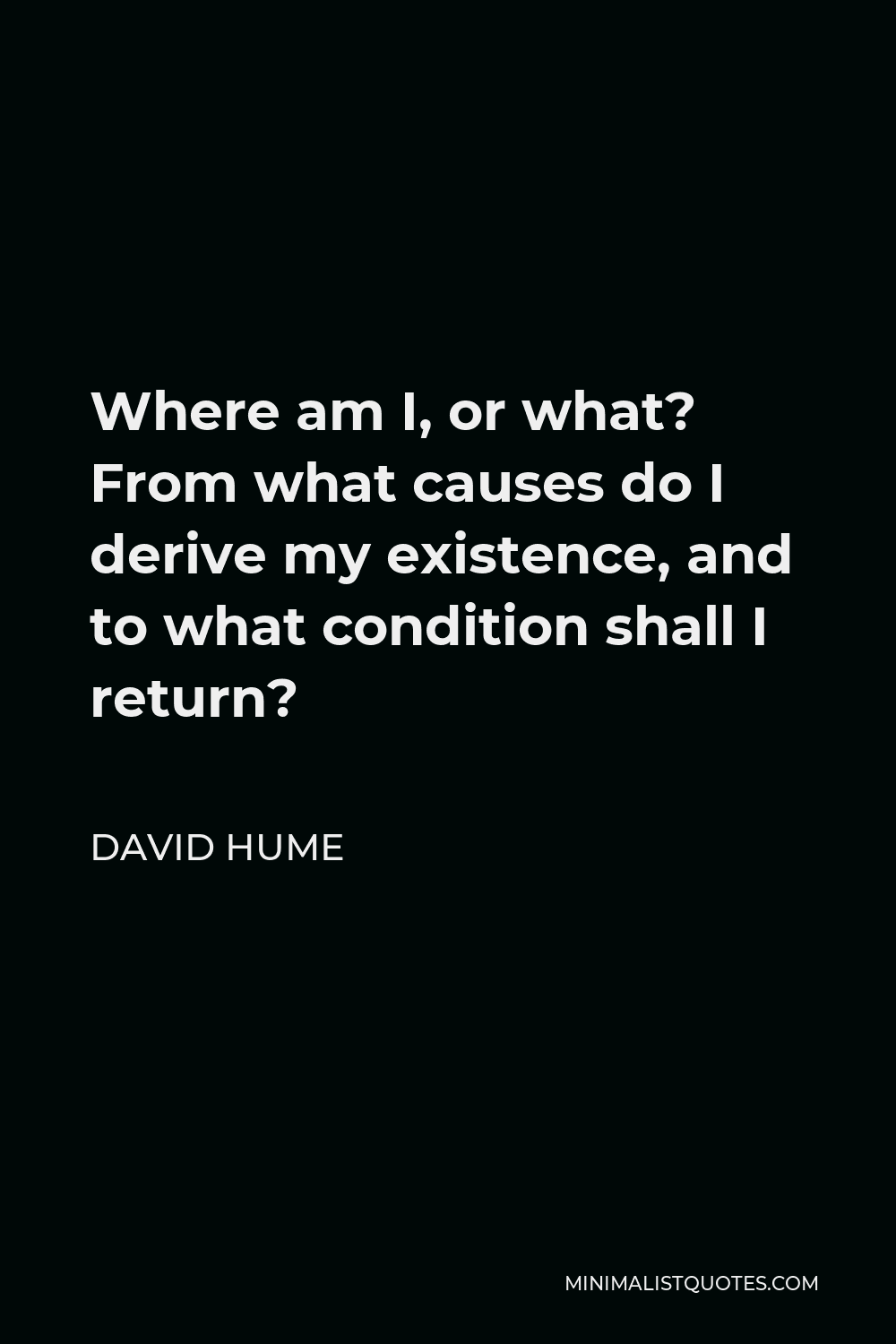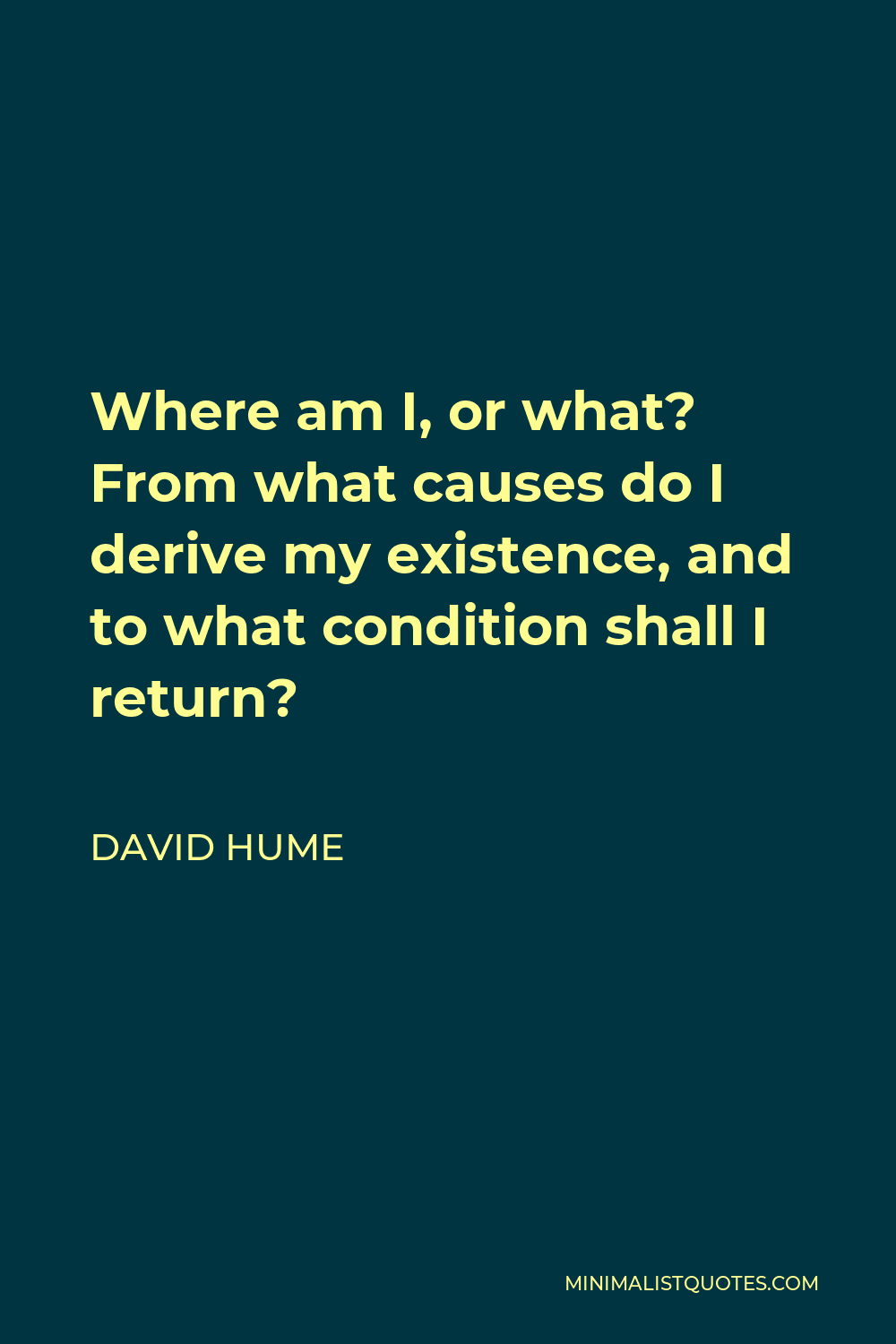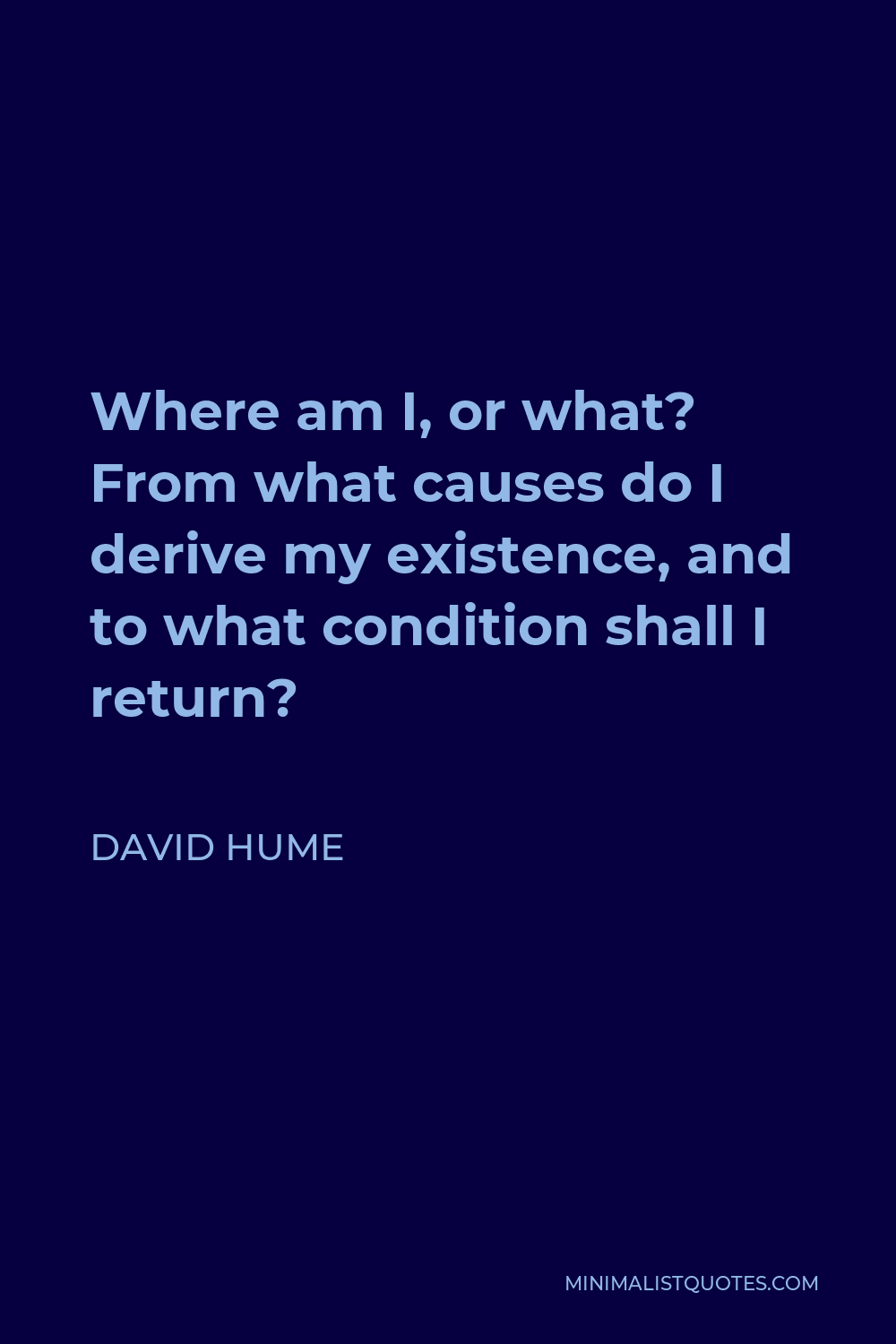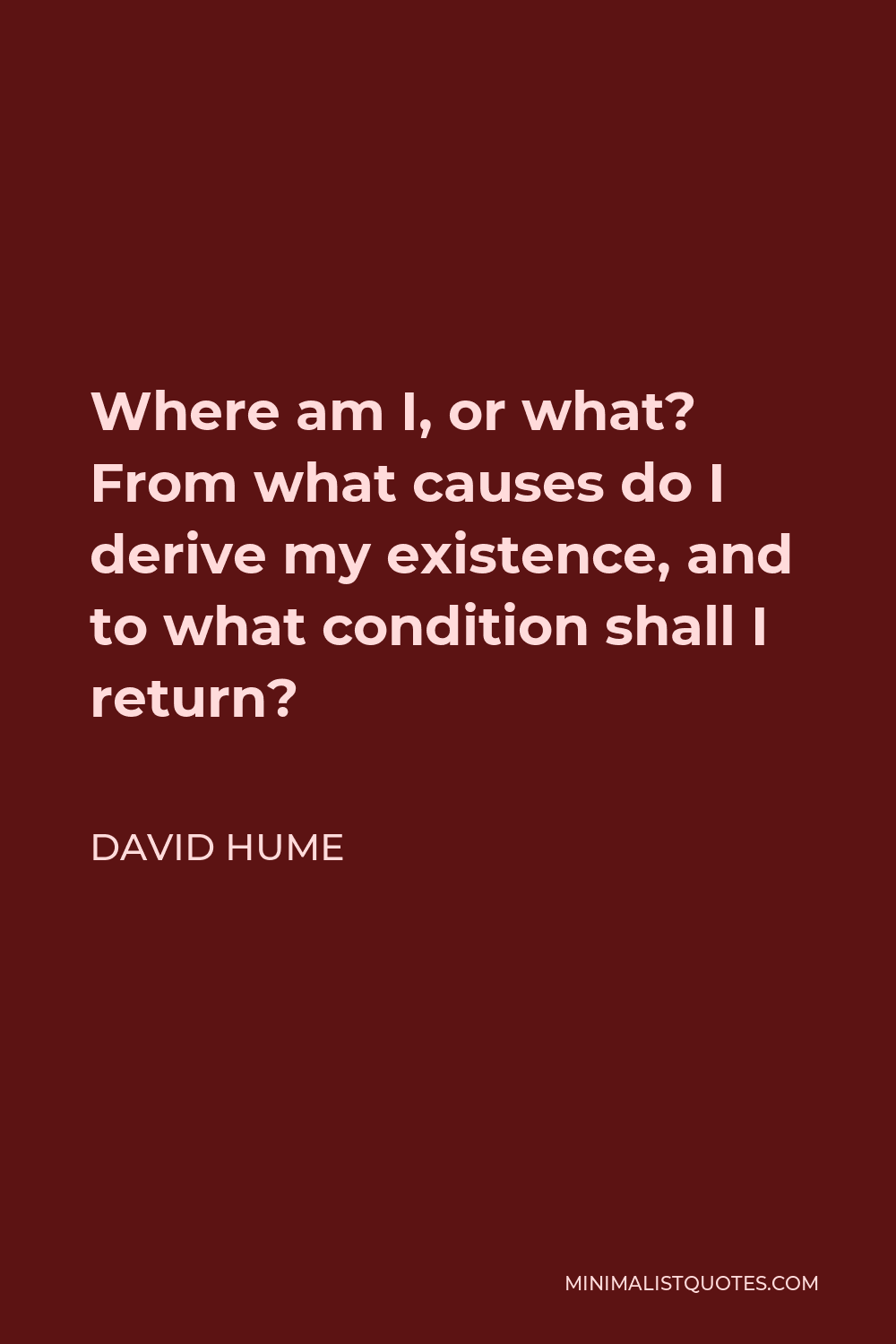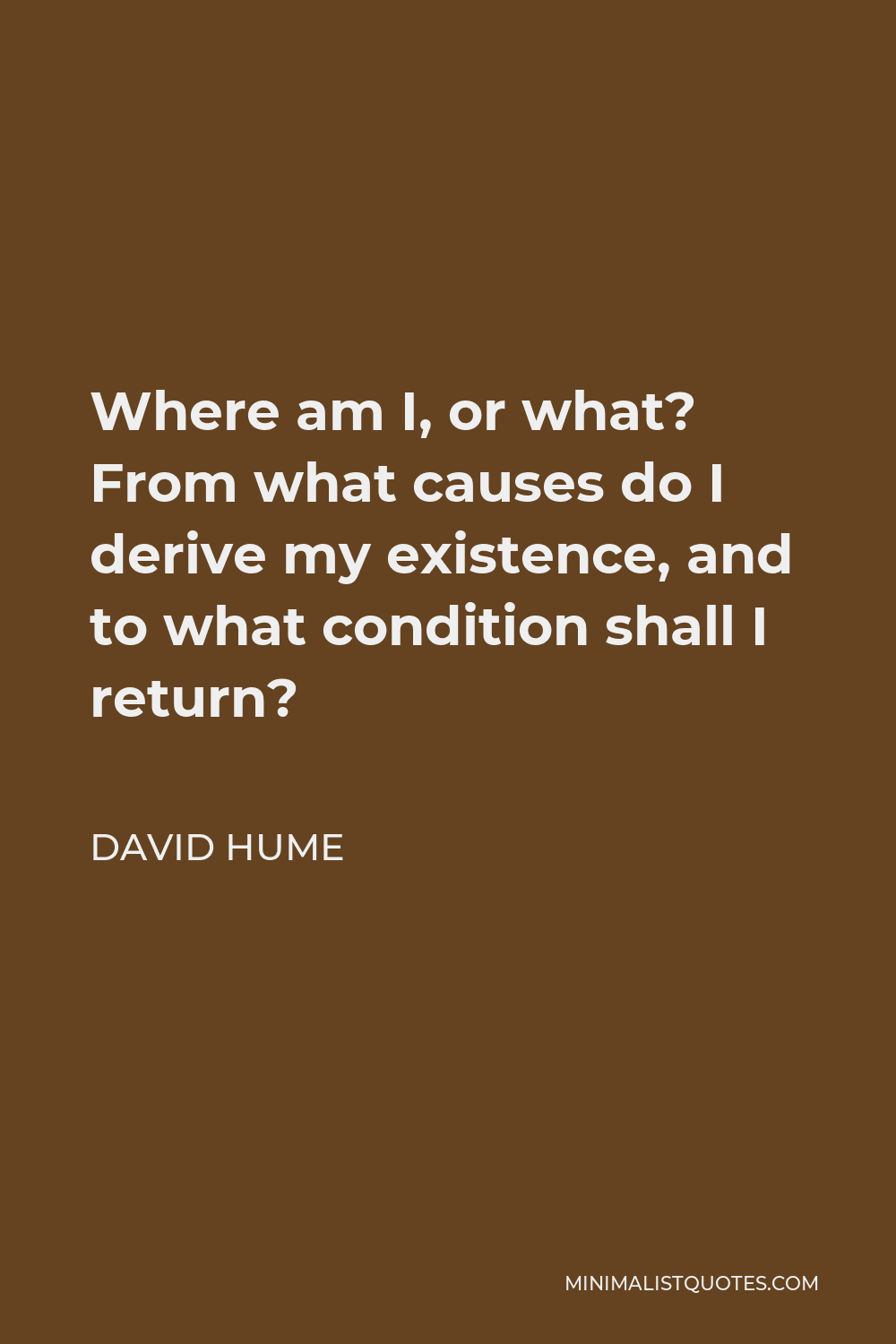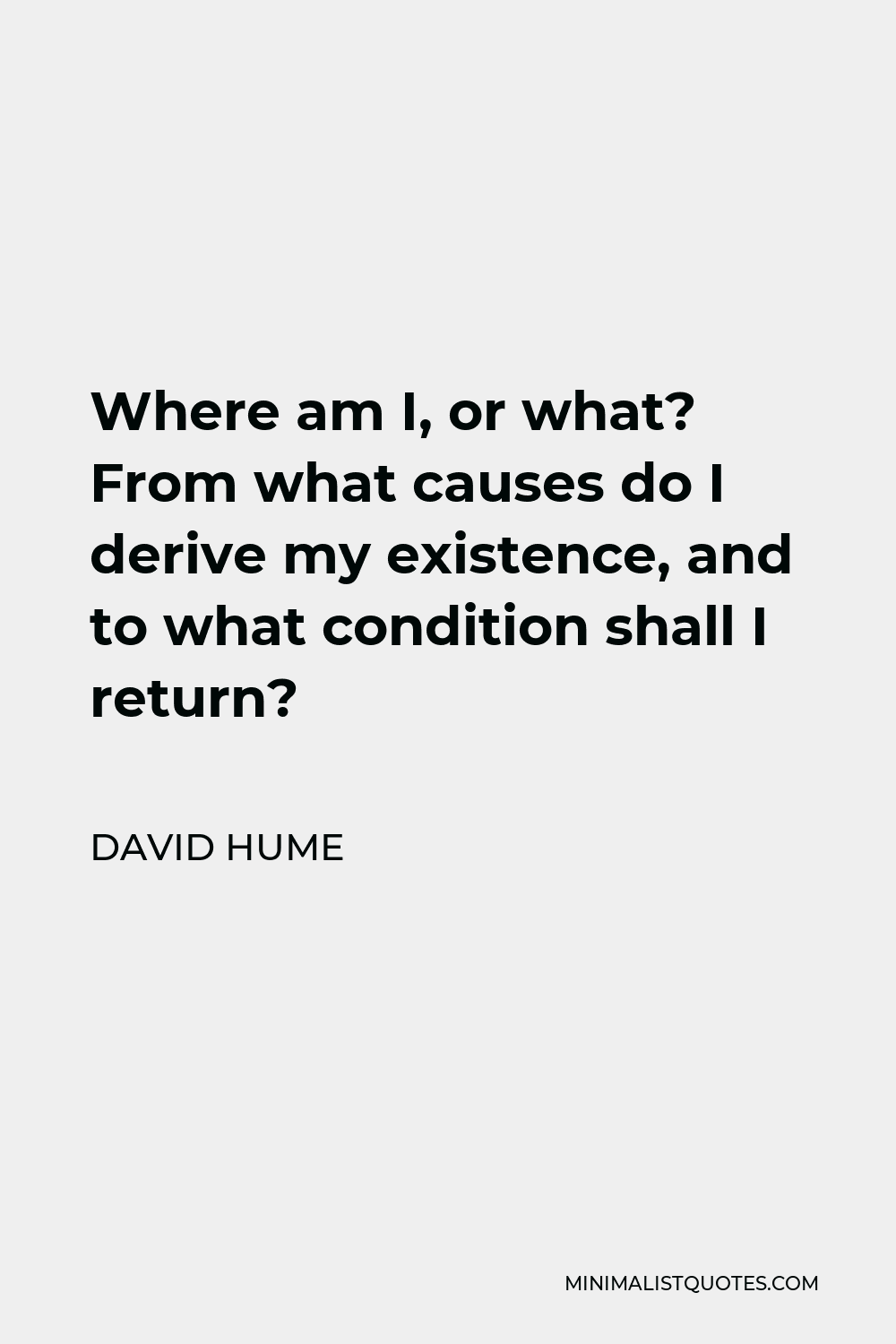In public affairs men are often better pleased that the truth, though known to everybody, should be wrapped up under a decent cover than if it were exposed in open daylight to the eyes of all the world.
DAVID HUMEWhere am I, or what? From what causes do I derive my existence, and to what condition shall I return?
More David Hume Quotes
-







-







Beauty in things exists in the mind which contemplates them
DAVID HUME -





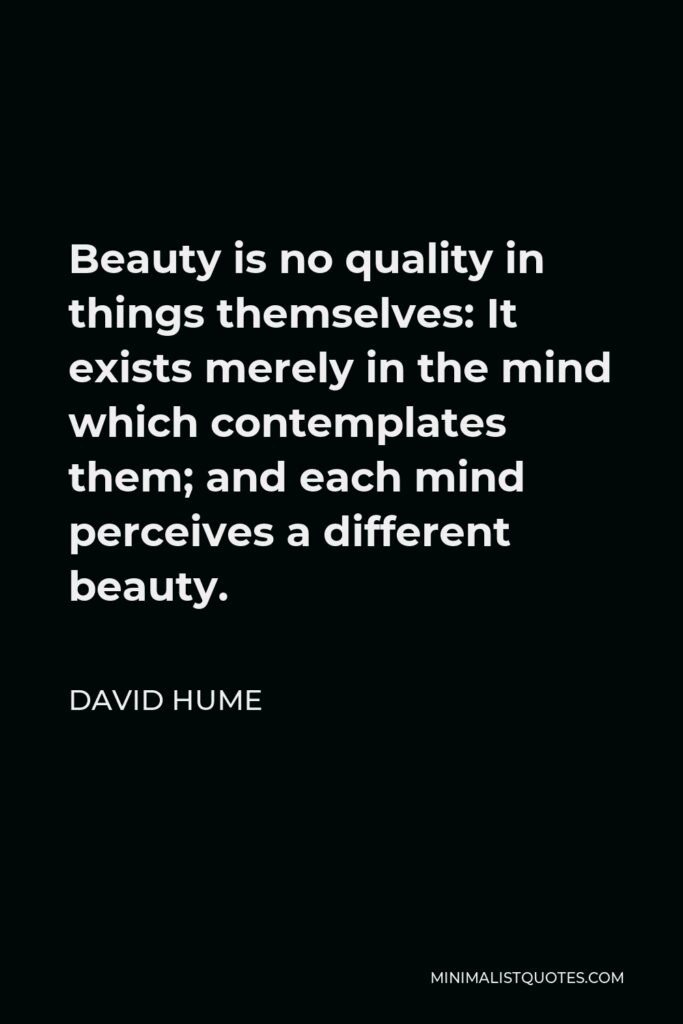

Beauty is no quality in things themselves: It exists merely in the mind which contemplates them; and each mind perceives a different beauty.
DAVID HUME -







Generally speaking, the errors in religion are dangerous; those in philosophy only ridiculous.
DAVID HUME -





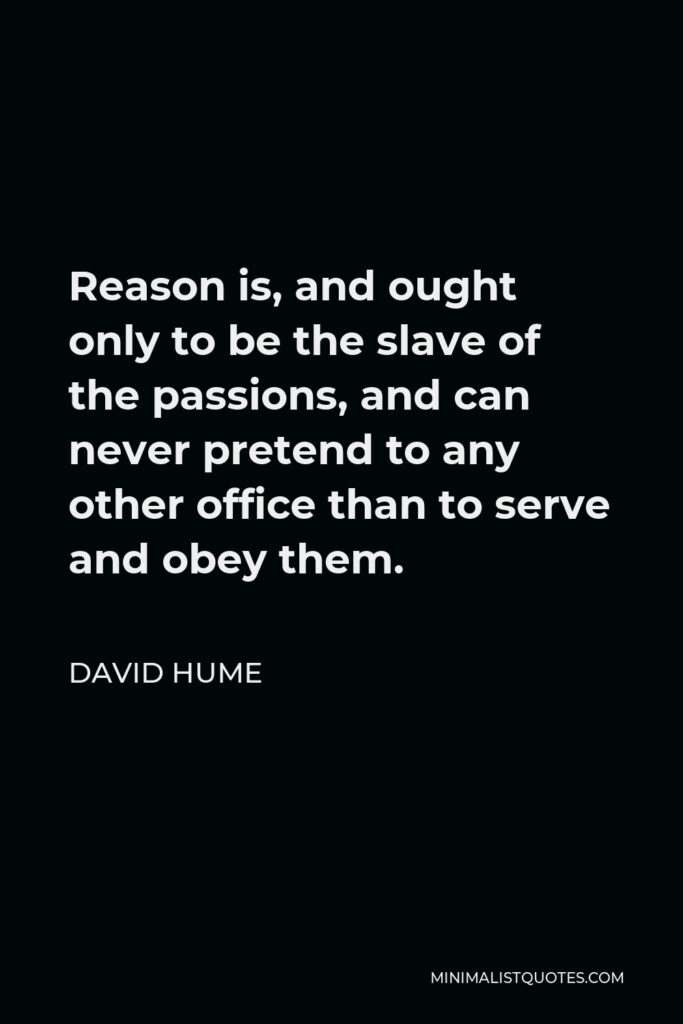

Reason is, and ought only to be the slave of the passions.
DAVID HUME -





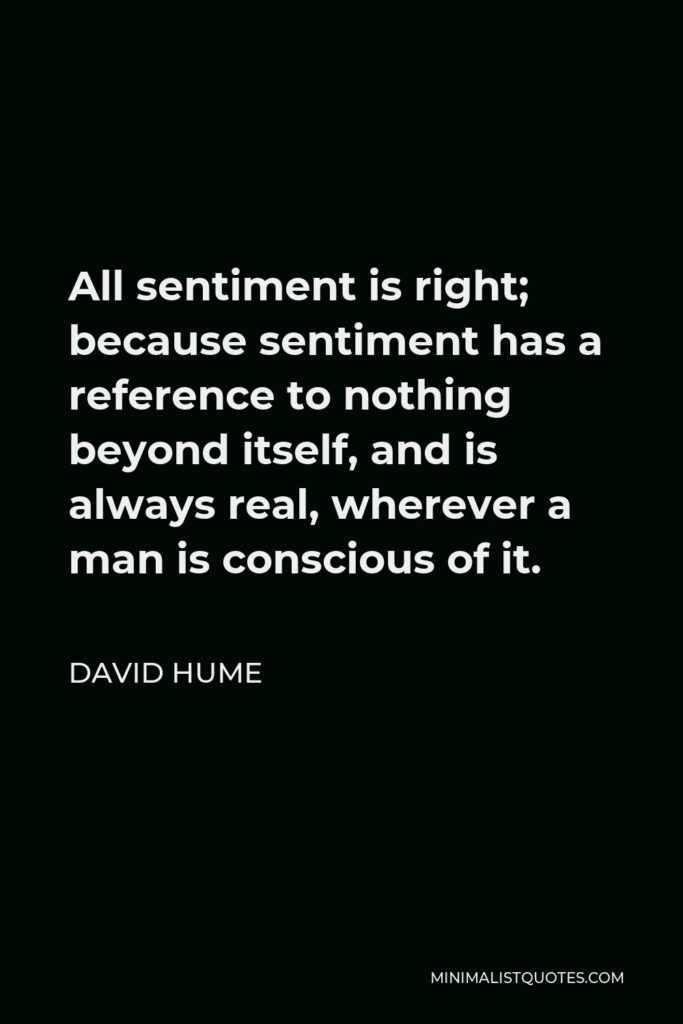

All sentiment is right; because sentiment has a reference to nothing beyond itself, and is always real, wherever a man is conscious of it.
DAVID HUME -





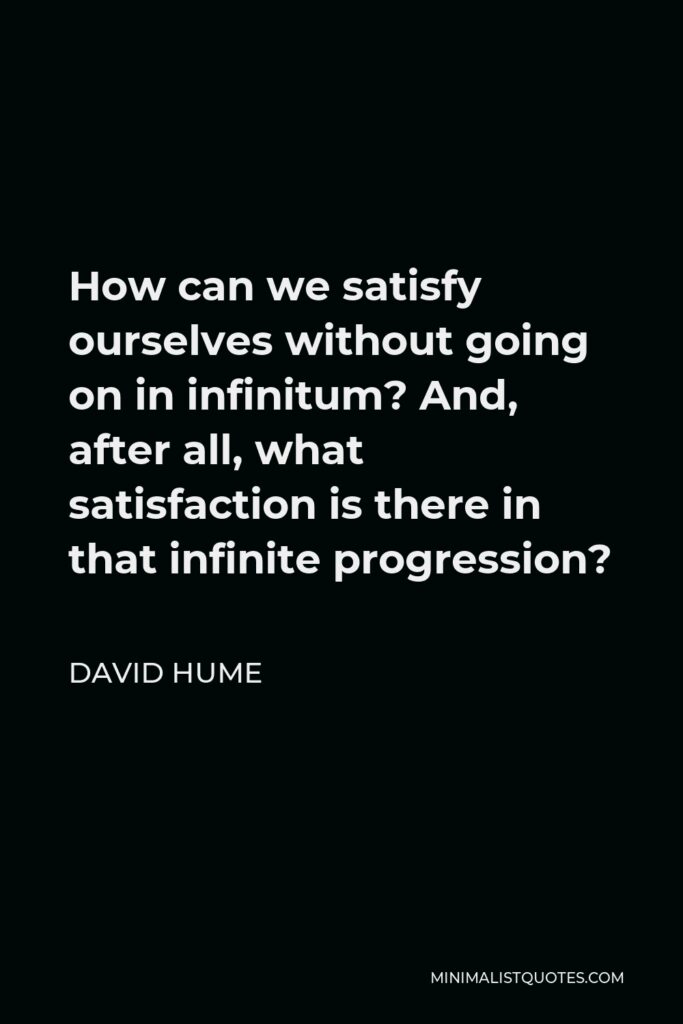

How can we satisfy ourselves without going on in infinitum? And, after all, what satisfaction is there in that infinite progression?
DAVID HUME -







A miracle is a violation of the laws of nature.
DAVID HUME -





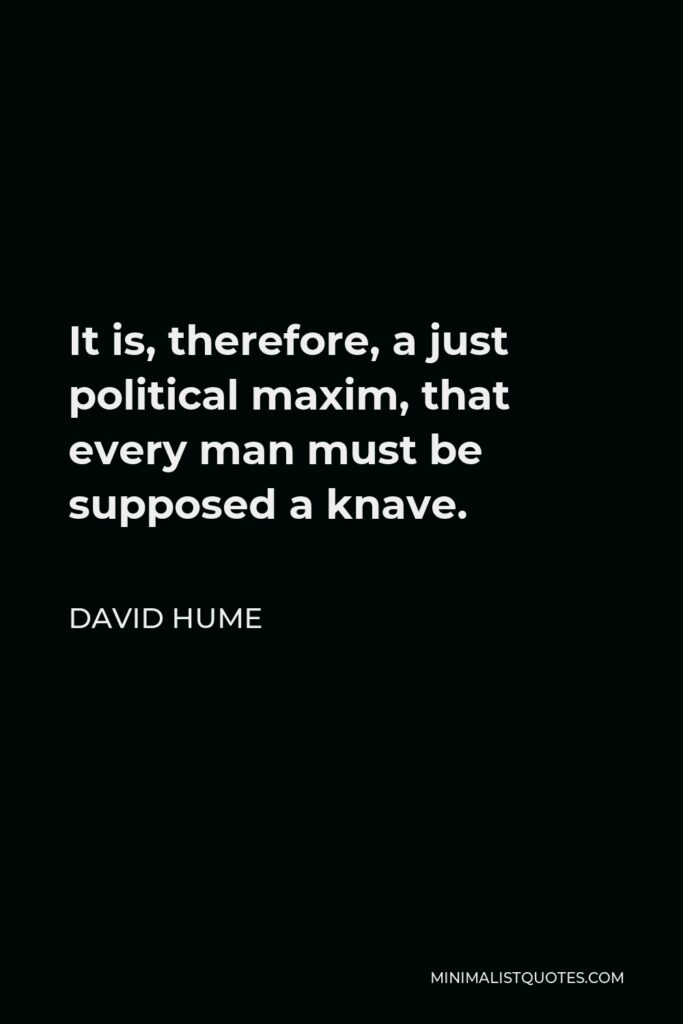

It is, therefore, a just political maxim, that every man must be supposed a knave.
DAVID HUME -





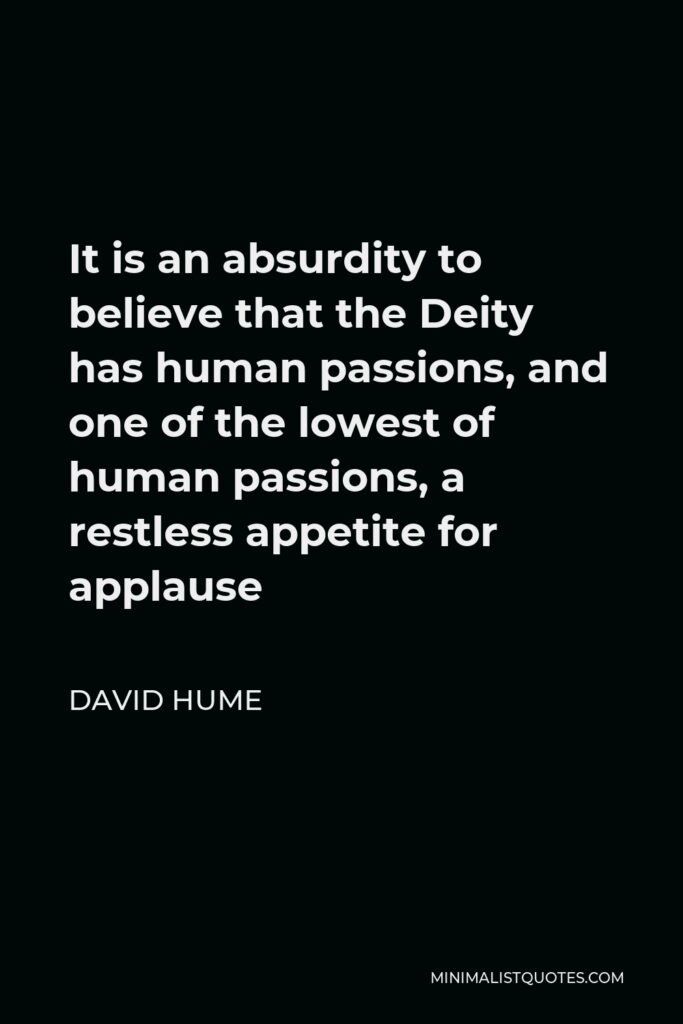

It is an absurdity to believe that the Deity has human passions, and one of the lowest of human passions, a restless appetite for applause
DAVID HUME -







Any pride or haughtiness, is displeasing to us, merely because it shocks our own pride, and leads us by sympathy into comparison, which causes the disagreeable passion of humility.
DAVID HUME -







Where am I, or what? From what causes do I derive my existence, and to what condition shall I return?
DAVID HUME -







I never knew anyone, that examined and deliberated about nonsense, who did not believe it before the end of his enquiries.
DAVID HUME -







The science of man is the only solid foundation for the other sciences.
DAVID HUME -







Heaven and Hell suppose two distinct species of men, the good and bad.
DAVID HUME -





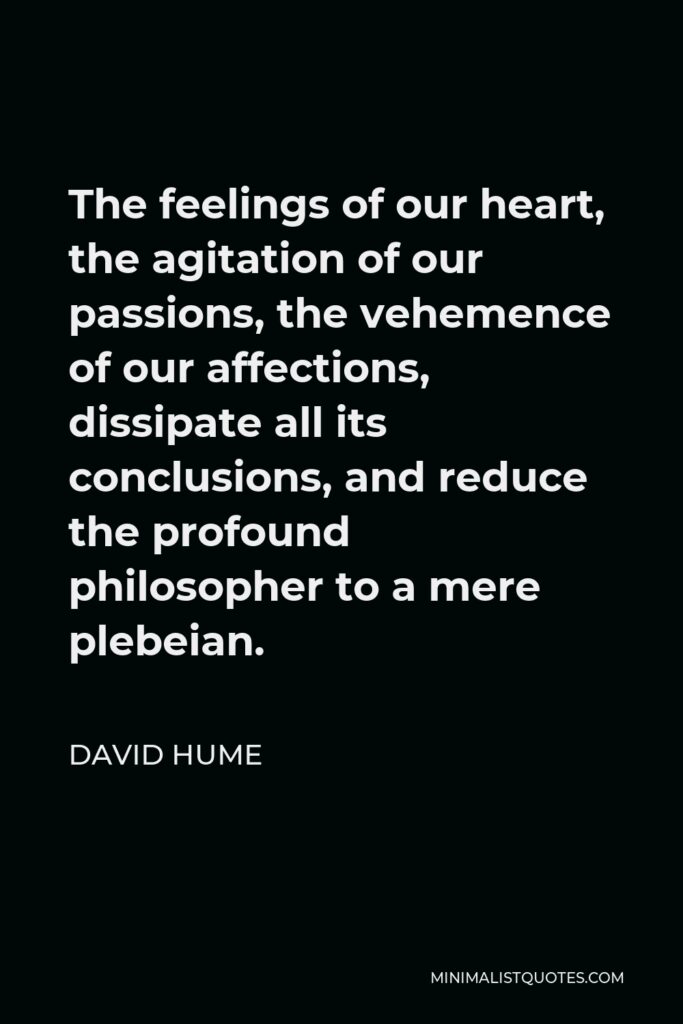

The feelings of our heart, the agitation of our passions, the vehemence of our affections, dissipate all its conclusions, and reduce the profound philosopher to a mere plebeian.
DAVID HUME
